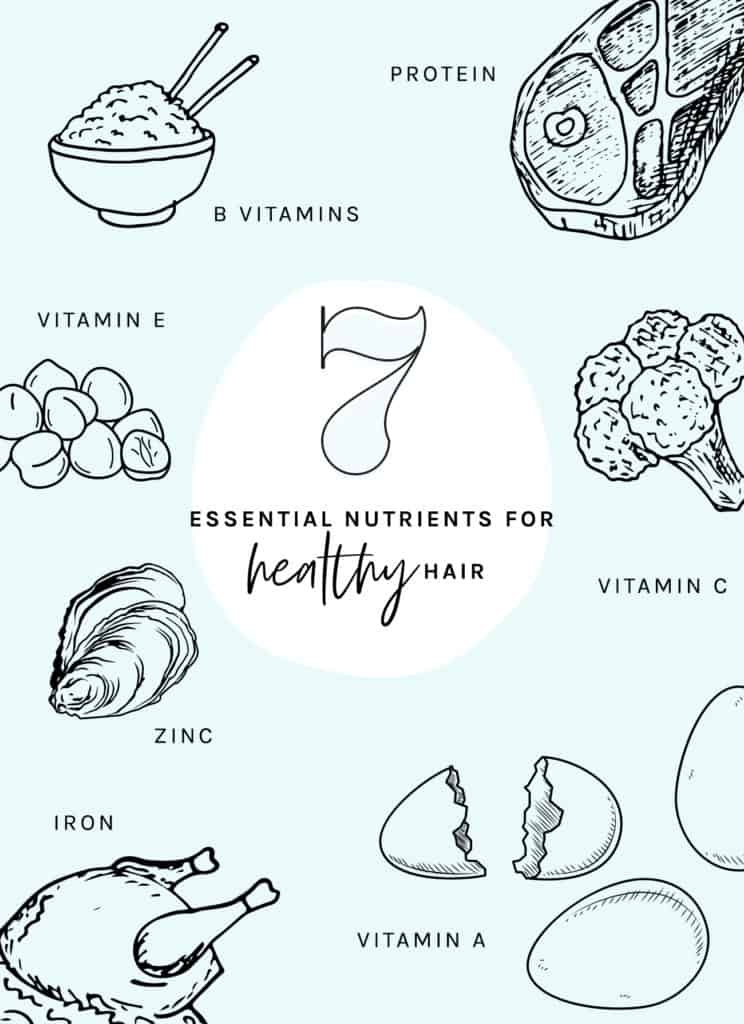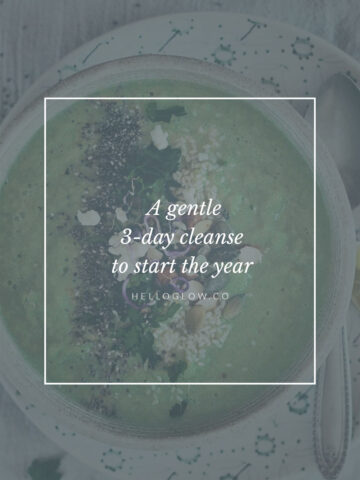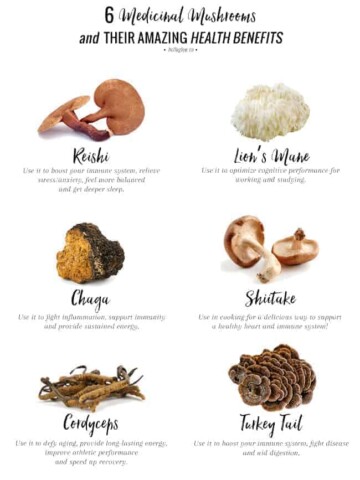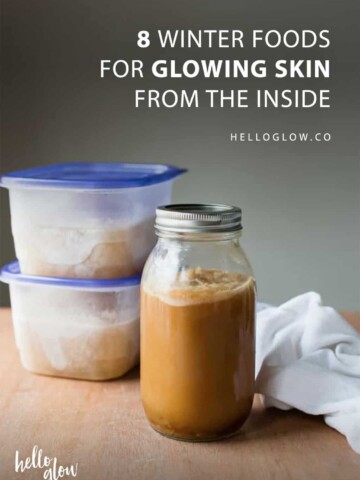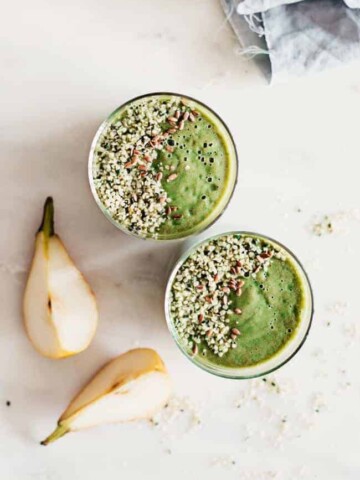When it comes to growing long, thick, lustrous hair, there are a number of factors at play. Genetics is a big one, for sure, as are age and environment. But when it comes to your hair, one thing is for certain: its appearance truly represents what you are feeding your body [source].
First, make sure you’re eating enough.
Our bodies are very intelligent and are highly organized to prioritize our most essential organs and vital body functions above all else. Auxiliary items like hair and fingernails rank pretty low on the priority list, even if they may seem super important to you.
Knowing this, it becomes crucial that to nourish your hair (and skin and nails), your nutrition must be optimal in the first place. If your body is in an ongoing state of deprivation, it’s going to direct all nutrients to take care of its most important functions, and your hair is going to suffer.
First and foremost, be mindful of eating a nutrient-dense diet that’s got enough energy (calories) for your age and activity level. Most processed foods are calorie dense but nutritionally poor. If you focus on eating a variety of real whole foods—you know, the ones you have to cut, cook, and prepare yourself—you and your hair will benefit. If you want to go a step further, make a point of prioritizing the 7 nutrients below.
7 Nutrients for Healthy Hair
1. Protein
Your hair is made from protein, so it stands to reason that protein plays a crucial role in how strong and healthy it is. Eating a diet too low in protein can lead to dry, brittle hair and even hair loss.
I recommend that most adults aim for about 56 grams of protein (0.8 g/kg of body weight or about 10–35% of your total calorie intake) in their diets each day [source], depending on age (older individuals need a bit more), diet (vegetarians should aim a little higher), activity level (weight lifters and athletes need more, too), and if pregnant or lactating (71 g/day).
Nuts, seeds, legumes, meat, and fish are all good sources of protein. Collagen protein is particularly helpful in the formation and strengthening of your hair.
2. B vitamins
The B’s encompass a family of vitamins, many of which are responsible for keeping your hair strong, increasing circulation to the skin, and stimulating follicles to grow healthy hair. They also play a role in reducing hair loss and helping to maintain longer, shinier hair.
Some people believe that B vitamins can reduce gray hair, but this gray-haired nutritionist would like you to know that the grays are kind of inevitable.
B vitamins of particular interest for strong, healthy hair include B2 (riboflavin), niacin, pantothenic acid, folic acid, B6, and B12. Another B vitamin, biotin, gets honorable mention as it plays a role in stimulating new cells to grow.
Good sources of B vitamins include eggs, chicken, salmon, halibut, quinoa, oatmeal, brown rice, and leafy green vegetables.
3. Iron
As a long-term vegetarian, I know that hair loss is a tell-tale sign that my iron is getting too low. Very low blood iron levels (referred to as iron-deficiency anemia) disrupt nutrient supply to the hair follicle, which, in turn, interrupts the hair’s natural growth cycle and results in shedding. As both the hair follicle and root are dependent on an iron-rich blood supply, getting enough of this important nutrient in your diet is key for your hair.
You’ll find heme (animal-derived) iron in red meat, chicken, and fish, and non-heme (plant-derived) iron in lentils, leafy green vegetables, pumpkin seeds, and dried apricots. Here are 10 vegan foods that are surprisingly high in iron. Note that vitamin C helps to enhance iron absorption, while calcium eaten at the same time can disrupt it.
4. Vitamin C
Not only does vitamin C help with the absorption of dietary iron, but it’s also an important antioxidant. Vitamin C also plays a vital role in the production of collagen protein, which works to strengthen the blood vessels that supply and enrich the hair shafts [source].
You’ll find vitamin C in citrus fruits, kiwi, strawberries, guava, papaya, blueberries, green peppers, tomatoes, cabbage, broccoli, and sweet potatoes.
5. Vitamin E
Vitamin E is another powerful antioxidant that helps to protect cells from damage [source]. Keeping a supply of vitamin E-rich foods in your diet will help to protect your hair from the sun, cold, and dry weather.
Almonds and other nuts are a great natural source of vitamin E, as are wheat germ, sunflower seeds, and leafy green vegetables.
6. Vitamin A
The oily substance produced by your scalp that keeps your head from becoming dry and itchy and keeps your hair hydrated depends on vitamin A [source]. This natural conditioner is secreted by your sebaceous glands, and without enough vitamin A, we can’t produce enough of it.
You’ll find vitamin A in dairy products, liver, and egg yolks. Plant-based beta-carotene is a precursor to vitamin A and can be found in orange and red fruits and veggies, such as persimmon, grapefruit, apricot, pumpkin, sweet potato, winter squash, carrots, tomatoes, and leafy greens.
7. Zinc
In some cases, a dry, flaky scalp can be caused by zinc deficiency [source]. Lack of zinc can also lead to hair loss and acne in some people.
Zinc can be found in oysters, beef, egg yolks, whole grains, and fortified cereals.
This post was medically reviewed by Dr. Jennifer Haley, a board-certified dermatologist with extensive experience in medical, cosmetic, and surgical dermatology. Learn more about Hello Glow’s medical review board here. As always, this is not personal medical advice, and we recommend that you talk with your doctor.
80
